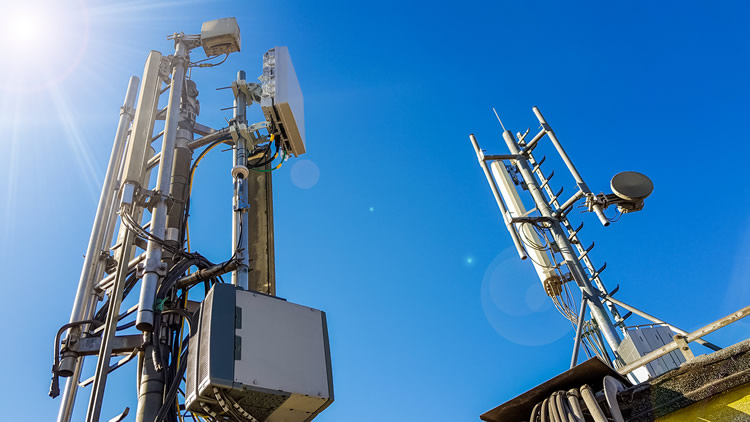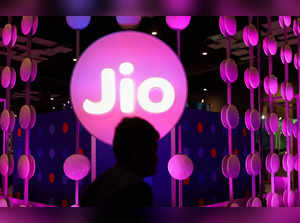Reliance Jio
Reliance Jio vs Starlink: administrative process or auction for satellite broadband services in India?
Reliance Jio has argued that India’s telecom regulator incorrectly concluded that home satellite broadband spectrum should be allocated and not auctioned, according to a letter seen by Reuters. That intensifies Jio’s face-off with Elon Musk’s Starlink.
Starlink is expected to launch broadband satellite service in India soon after receiving a Global Mobile Personal Communication by Satellite (GMPCS) license. The Telecom Ministry has granted in-principle approval, and the Home Ministry is expected to finalize the vetting process. Starlink’s initial strategy was to provide satellite broadband directly to consumers, but the company may now only offer business services in India
India’s telecom regulator, TRAI, is holding a public consultation, but Reliance in a private Oct. 10 letter seen by Reuters asked for the process to be started afresh as the watchdog has “pre-emptively interpreted” that allocation is the way forward. “TRAI seems to have concluded, without any basis, that spectrum assignment should be administrative,” Reliance’s senior regulatory affairs official Kapoor Singh Guliani wrote in the letter to India’s telecoms minister Jyotiraditya Scindia.
References:
https://www.reuters.com/business/media-telecom/ambanis-reliance-lobbies-india-minister-satellite-spectrum-new-face-off-with-2024-10-13/
India’s TRAI releases Recommendations on use of Tera Hertz Spectrum for 6G
FCC: More competition for Starlink; freeing up spectrum for satellite broadband service
SpaceX launches first set of Starlink satellites with direct-to-cell capabilities
Communications Minister: India to be major telecom technology exporter in 3 years with its 4G/5G technology stack
India’s Trai: Coexistence essential for efficient use of mmWave band spectrum
OneWeb, Jio Space Tech and Starlink have applied for licenses to launch satellite-based broadband internet in India
Starlink to explore collaboration with Indian telcos for broadband internet services
LightCounting & TÉRAL RESEARCH: India RAN market is buoyant with 5G rolling out at a fast pace
The India Wireless Infrastructure Report provides an update on the 5G radio access (RAN) developments in India, including geopolitics trends and technology. The report says that The RAN market in India is buoyant with a swelling local ecosystem that boasts big international ambitions.
Reliance Jio is rolling out 5G at a fast pace, followed by Bharti Airtel. As a result,1H23 RAN sales surged 300% YoY, and kept Ericsson in the driver’s seat, followed by Nokia and Samsung. Although the rollout pace has slowed down, 2023 is looking up, looks like the peak year, and we expect RAN equipment sales to more than double compared to last year, still driven by Jio and Airtel while BSNL will contribute with its 4G deployment.
“It’s a two-horse race, the near Jio / Airtel duopoly is quickly blanketing the country with 5G while the rest are struggling and catching up with 4G.” said Stéphane Téral, Chief Analyst at LightCounting Market Research and Founder of TÉRAL RESEARCH.
Source: LightCounting
………………………………………………………………………………………………………………………….
- 2024 is shaping up as a shift year from 5G network buildout to how to foster utilization and some midband FWA experiments.
- Due to the looming formation of a CSP duopoly, the looming merger of MTNL into BSNL, and Vodafone Idea’s unsustainable indebtment, our long-term forecast points to a lumpy RAN market. There is no surprise that India is a tough cellular market characterized by flat subscriber growth, ultralow ARPUs and low equipment average sales pricing.
- Open RAN is the brightest spot with a penetration of the total RAN market that will surpass 50% by 2028.
- At the same time, a mushrooming energetic local ecosystem is rising with great international ambitions enabled by strong ties between the U.S. and India.
…………………………………………………………………………………………………………..
References:
https://www.lightcounting.com/report/september-2023-india-wireless-infrastructure-217
https://www.lightcounting.com/report/september-2023-open-vran-market-213
Reliance Jio in talks with Tesla to deploy private 5G network for the latter’s manufacturing plant in India
OTT players in India struggle in telco partnerships
Communications Minister: India to be major telecom technology exporter in 3 years with its 4G/5G technology stack
India to set up 100 labs for developing 5G apps, business models and use-cases
Adani Group to launch private 5G network services in India this year
Reliance Jio to sign $1.5 billion 5G network equipment deal with Nokia (“Home grown 5G” never happened)
Whatever happened to Jio’s claim of “home grown 5G“? Answer: It was a big bold faced lie! Almost 3 years ago, Jio Chairman Mukesh Ambani said his company had developed its own 5G solution “from scratch.” He said at the time, “Jio plans to launch “a world-class 5G service in India…using 100% home grown technologies and solutions,” he said in a statement at the Reliance Industries annual shareholders meeting. “Once Jio’s 5G solution is proven at India-scale, Jio Platforms would be well-positioned to be an exporter of 5G solutions to other telecom operators globally, as a complete managed service,” he added.
…………………………………………………………………………………………………………………………………………………………….
Fast forward to today. Jio, India’s largest telecoms operator, is set to sign a contract at Nokia’s Headquarters in Helsinki, Finland, according to sources speaking to the Economic Times.

The purchase will be financed by several global banks, including HSBC, Citigroup, and JP Morgan, whose combined loans will total around $4 billion. Finnish state-owned export credit agency Finnvera is set to issue guarantees to the lenders. Representatives from the banks are likely to be present at the signing, as well as Senior Executives from Reliance Group.
At the time, financial details of the deals were not disclosed; however, media reports have since suggested that the deal with Ericsson was worth $2.1 billion. Now, this deal with Nokia will see the total 5G investment reach roughly $3.6 billion.
Earlier this year, Jio’s president Mathew Oommen said the company aimed to become “the largest 5G SA (standalone) only network operator in the world in the second half of 2023”, with the company targeting nationwide coverage by the end of the year.
In October 2022, Jio signed 5G equipment contracts with both Nokia and Ericsson.
In related news, earlier this week, Reliance Industries announced the launch of a budget 4G phone, (costing $12), aiming to convert the 250 million 2G users in India to 4G. The company says its goal is to pass the benefits of the internet-capable mobile technology to every Indian.

References:
https://totaltele.com/indias-jio-to-sign-1-5-billion-5g-equipment-deal-with-nokia/
Reliance Jio’s “Home Grown” 5G? Ericsson and Nokia in multi-year deals with Jio to build a mega 5G network
Reliance Jio claim: Complete 5G solution from scratch with 100% home grown technologies




